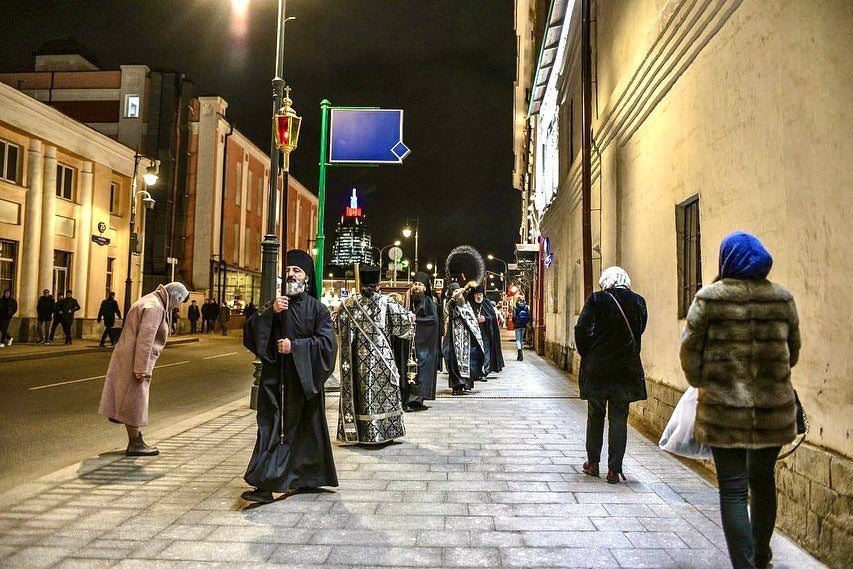Coronavirus: Orthodox Church holds daily processions against pandemic in Russia
Clergymen hope divine intervention will follow their regular evening walks

Your support helps us to tell the story
From reproductive rights to climate change to Big Tech, The Independent is on the ground when the story is developing. Whether it's investigating the financials of Elon Musk's pro-Trump PAC or producing our latest documentary, 'The A Word', which shines a light on the American women fighting for reproductive rights, we know how important it is to parse out the facts from the messaging.
At such a critical moment in US history, we need reporters on the ground. Your donation allows us to keep sending journalists to speak to both sides of the story.
The Independent is trusted by Americans across the entire political spectrum. And unlike many other quality news outlets, we choose not to lock Americans out of our reporting and analysis with paywalls. We believe quality journalism should be available to everyone, paid for by those who can afford it.
Your support makes all the difference.Russia may have registered its first death from the novel coronavirus — the latest sign that the pandemic is silently taking hold in the country — but help is apparently on its way from God and the Orthodox Church.
Clergymen of the Vysokopetrovsky male monastery in central Moscow have announced “daily holy processions” to fight off the deadly virus. Abbot Pyotr, master of the ceremony, said that the idea was for half a dozen clerics to circle the monastery every evening, splashing walls with holy water in a call for divine intervention. The first march took place following evening service on Wednesday.
“We turn to the Lord, the Blessed Virgin Mary and the Blessed Saint Peter of Kiev, the Moscow Miracle Worker, for help and intercession to all those in need,” the abbot explained on his Instagram page.
Organisers insist parishioners will not be invited to join in the holy procession — a concession to public health that follows the decision to ban an "automobile holy procession" last week. But was not immediately clear how even this limited march fitted into new city-wide regulations banning all outside gatherings.
According to Abbot Pyotr, the tradition of holy processions at times of woe stretched back to Byzantium and the Middle Ages.
“The clergy and believers went around houses, streets, monasteries, calling on the Lord and saints to help,” he said. “Today we all need help from above. The Lord will not leave anyone!”
During the Middle Ages, a time of multiple epidemics, religious congregations were themselves not infrequent epicentres of disease. The indiscriminate nature of the Black Death in the 14th century — killing as it did a high proportion of of clergymen — was a major factor in diminishing the authority of Churches around the globe.
Join our commenting forum
Join thought-provoking conversations, follow other Independent readers and see their replies
Comments